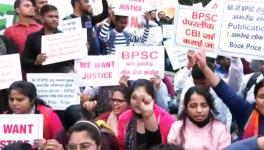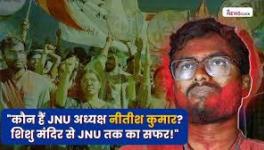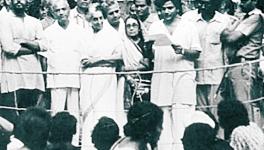More Academicians Demand Removal of Names from NCERT Textbooks, Cite Jeopardy to Collective Creative Effort

Highlighting the substantial revisions and differences from the original texts, the academicians found it difficult to associate their names with the revised versions. | (NCERT campus on Aurobindo Marg New Delhi | Image courtesy: Wikimedia Commons)
New Delhi: A significant development has unfolded in the ongoing controversy surrounding the National Council of Educational Research and Training (NCERT) textbooks, as 33 academicians, who were part of the Textbook Development Committee, have demanded the removal of their names from the current textbooks. According to a report published in The Hindustan Times, the move comes just days after political scientists Yogendra Yadav and Suhas Palshikar dissociated themselves from the "rationalised" political science textbooks.
In a letter addressed to NCERT Director Dinesh Saklani, the academicians expressed their concerns regarding the recent rationalisation exercise conducted by the NCERT, which they claim has jeopardised their collective creative effort. The academicians criticised the opaque decision-making process, deletion of sentences, and removal of sections considered unacceptable or desirable, stating that it violates the core principles of transparency and contestation in academic knowledge production.
“NCERT is now making changes to the textbooks. These involve deletions of sentences and removal of some sections (even chapters) considered unacceptable with emphasis given to others considered desirable. The decision of who decides what is unacceptable and what is desirable has been kept rather opaque, violating the core principles of transparency and contestation that, we believe, underlies academic knowledge production,” read the letter.
Highlighting the substantial revisions and differences from the original texts, the academicians found it difficult to associate their names with the revised versions of the textbooks. They emphasised that the creative collective effort invested in the books is now in jeopardy. In their letter, they urged the NCERT to remove their names from the political science textbooks, citing the significant changes made.
“Since there are several substantive revisions of the original texts, making them thereby different books, we find it difficult to claim that these are the books we produced and to associate our names with them,” the academicians added.
The signatories to the letter include prominent names such as Kanti Prasad Bajpai, former Jawaharlal Nehru (JNU) professor and current vice dean at the National University, Singapore; Pratap Bhanu Mehta, former vice-chancellor of Ashoka University; Rajeev Bhargava, former director of CSDS; Niraja Gopal Jayal, former JNU professor; Nivedita Menon, JNU professor; Vipul Mudgal, head of civil society watchdog Common Cause; KC Suri, former professor at the University of Hyderabad associated with Gitam University, and Peter Ronald deSouza, former director of the Indian Institute of Advanced Studies (IIAS).
Last week, Yogendra Yadav and Suhas Palshikar, former NCERT advisors, wrote a letter to the NCERT expressing their dissatisfaction with the rationalisation exercise. They alleged that the changes had mutilated the textbooks beyond recognition, rendering them academically dysfunctional.
The controversy surrounding removing several topics and portions from NCERT textbooks earlier this year triggered a wave of criticism, with the opposition accusing the BJP-led Centre of engaging in a "whitewashing" agenda. The NCERT initially described the omissions as oversights but refused to undo the deletions, stating that they were based on expert recommendations. The council later changed its stance, asserting that "minor changes need not be notified."
The demand by the 33 academicians to have their names removed from the textbooks intensifies the ongoing debate on the integrity and transparency of curriculum development. The NCERT, facing mounting pressure, is yet to respond to this latest request. The implications of this development for the future of educational material and the broader discourse on academic freedom remain to be seen.
Get the latest reports & analysis with people's perspective on Protests, movements & deep analytical videos, discussions of the current affairs in your Telegram app. Subscribe to NewsClick's Telegram channel & get Real-Time updates on stories, as they get published on our website.
























